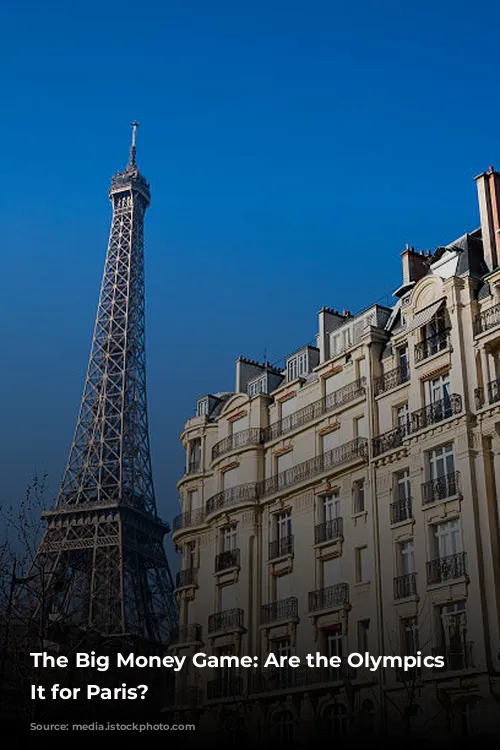The Paris 2024 Olympics are just around the corner, and with them comes a familiar debate: is the cost of hosting such a massive event worth the potential economic benefits? The Olympics are a global spectacle, lasting only a couple of weeks, but their impact on the host city can linger for years.

A History of Financial Ups and Downs
The Olympics have a history of both financial successes and failures. Only two Summer Olympics have ever turned a profit according to a recent report. The 1984 Los Angeles Games generated nearly $1 billion in surplus, while the 2000 Sydney Games also showed a positive financial outcome. However, the 1976 Montreal Games stand as the most financially disastrous Olympics, with a deficit of -$5.7 billion, a stark reminder of the financial risks associated with hosting these games.

Can Paris Turn Gold?
The International Olympic Committee (IOC) argues that the investment in infrastructure creates long-lasting benefits for the host city, providing enjoyment and economic opportunities for generations. Paris, for its part, has allocated a whopping $10.6 billion to prepare for the Games, including building new venues like a beach volleyball court beside the Eiffel Tower and a massive aquatics center. But will this investment pay off?

A Tourist Boom and Uncertain Profits
The Olympics are expected to attract a massive influx of tourists, who will fill hotels, restaurants, and public transportation, generating economic activity in Paris. The organizing committee claims the Games will create over 181,000 jobs, a mix of temporary and existing positions. However, the question remains: will these new jobs actually add to the city’s economic output, or will they simply make existing jobs busier?

Airbnb’s Opportunity
Airbnb is expected to play a significant role in the Games’ economics. With three million visitors expected, the company anticipates a significant boost in bookings, with an average host earning €2,000 during the games. This could be a reputation-building opportunity for Airbnb in Paris, where it faces strict regulations.

A Balancing Act: Costs and Benefits
Estimates suggest that the Paris Games could generate $7.4 to $12.2 billion in economic benefits. This includes tourism income, construction spending, and event-related activities. However, it’s important to note that this is a best-case scenario and not a direct return on investment.

Sponsorship and Broadcast Revenue
Sponsorship is a crucial source of revenue for the Olympics. Paris is aiming for $1.34 billion in sponsorship revenue, and has already secured deals with major companies like Accor, LVMH, and Orange. Broadcast rights also generate substantial income, with NBC Sports in the US alone having secured $1.2 billion in advertising commitments.

The Bottom Line
The Paris 2024 Olympics have been a significant investment, and the economic impact will depend on a complex interplay of factors. While the Games may not be a guaranteed financial success, they are undoubtedly a major economic stimulus for the city. The ultimate question remains: will Paris win the gold medal for profitability, or will it be a close call? Only time will tell.







